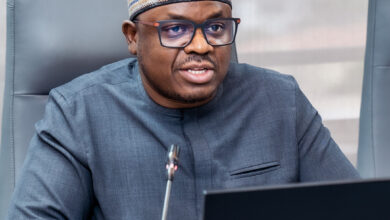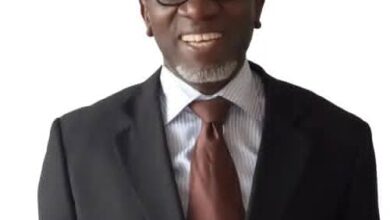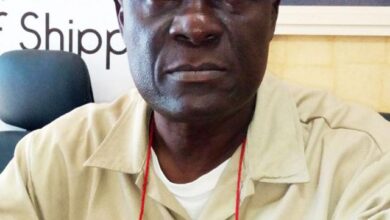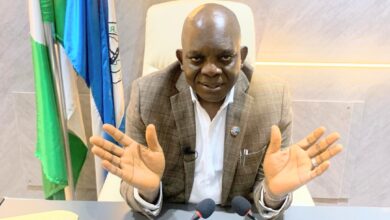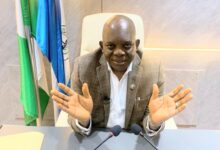Not Using Rail for Cargo Movement Causes Huge Losses to Government, Investors – Yusuf, MD ICNL
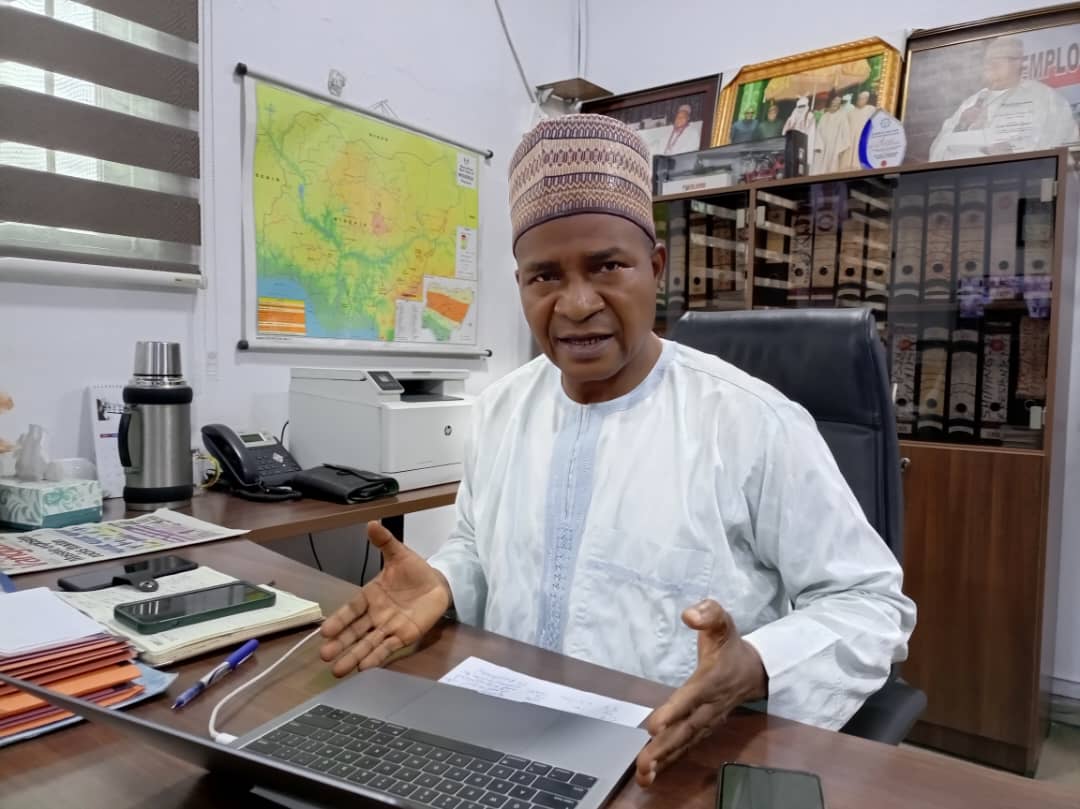
Ismail Yusuf, Managing Director of Inland Containers Nigeria Limited (ICNL) spoke on how best to revive the economy and mitigate utilise rail infrastructure to enhance trade.
Yusuf with over three decade experience in the country’s maritime and logistics sectors shared from his vast experience in linking the hinterland with the port activities through container movement from the ports to Kano and Kaduna state’s.
He spoke to Ismail Aniemu in Lagos
Excerpt
Give us an overview of how your company has fared so far because your company is a critical participant in the maritime industry.Have you made some giant strides?
I need to give you a brief about what happened in the past especially in 2023 as regards the operations of Inland Containers Nigeria Limited and Kaduna Inland dry port.
The major challenges we have include lack of direct transportation from the seaport to the interland.Most specifically Kaduna and Kano where we have our operations because the cost of moving containers these days is so expensive that it is impacting on our profitability and it’s also not helping the government.The government is also using road and not rail.I want to give an example.
When I joined this company in 1990 as a Corp Member, we used to invoice our customers for cost of moving containers from Lagos Port to Kaduna at the cost of N1,850 but today, the cost has increased to N2.7 million. That is the difference of over N2.6 million.You can see how the inflation has added up to the inability of the government to do the right the right thing.
In 2023, when we moved about 15,000 containers, we were supposed to move them by rail but unfortunately, the rail didn’t work at all.We moved those containers by road and we eventually paid both Kaduna and Kano cost of transportation to our transporters which was about N72 billion. Our breakdown shows that about N48 billion was spent to move containers to Kano and N24 billion to Kaduna.
This is the revenue that Federal Government is supposed to benefit from by putting the rail in place.If that is not done, I don’t see how our economy can grow because we will continue to lose money.
Moving containers by rail saves cost,reduces pressure on the roads, saves time and enhances cargo safety but Nigeria has not done much to maximize this mode of transportation for business development.
What the railway makes from passenger fares is not enough to cover for its costs of procurement and maintenance except it is deployed for business purposes like moving containers in commercial volumes.
The Federal Government is looking for revenue this time around.Again, there are a lot of things that we will need to do.For instance, the new Ministers appointed by the present administration. We thank God that the Federal Government has separated the Ministry of Transportation from Marine and Blue Economy.
We have new Ministers for both Ministries.My advice to both of them is that they should work together and harmonize their plans and target. We working in the maritime sector especially we at the interland, need rail to work for us because that will help us to improve in our own throughput which is the volume of Cargo we move to Kaduna and Kano and other interland areas.
The Ministry of Transportation needs to revisit the standard gauge and narrow gauge.Presently, the standard guage is not up to Kano, we only have it from Lagos to Ibadan. The old narrow gauge is still there.What they need to do is to resuscitate and repair whatever damage they have and let it start moving.If they don’t have wagons, or locomotive, they can partner with us because we are private investors who are willing to invest in rail activities so that Nigerians can benefit from this.
For the Minister of Marine and Blue Economy, he has to do a lot more to ensure that because there is a lot of money in the maritime sector.If he partners with the Ministry of Transportation,then we that are moving cargo from the seaport will also benefit from their partnership.
But for the Minister of Marine and Blue Economy, he has a lot to do in the area of accessibility to the port because in the maritime sector, time is money.Today, I was coming to Apapa, from Mile 2 to Tincan Second Gate ,the route we were supposed to pass was filled up with tankers that were lined up to lift fuel and trucks carrying empty containers trying to gain access into the port.
They were all static.People had to follow one way which is dangerous because those that wanted to do business in the port were loosing money.They cannot lift their cargo and this inaccessibility is affecting the people that will make the economy grow like manufacturing companies, Non Government Organization that are willing to give some of the items they imported to the less privileged, those importing finished goods.
Their cargoes are tied down in the port, they cannot have access to them and they are still be paying demurrage to Shipping Companies and terminal operators.Government is not looking at that direction which is very bad.All those costs are still going to be passed to Nigerians because we are still the people that will go to the market to buy these items.
We are not helping ourselves.These are the things that the Ministers need to check.The other day he visited here, I thought he will come to Coconut area,after Tin Can Island Port.He does not need to tell them that he is coming.He should come unexpectedly and see whether things are working out at all.
People are suffering seriously.It is not only Nigeria that has ports, other West African countries have ports too.If you go to Cotonou, you will see the sanity.We don’t have that here in Nigeria and it is very bad.People will continue to run away from our economy if we don’t put things right.That is my advice for the government in power, especially the Ministers that are saddled with these responsibilities.
Let us look at how the exchange rate has affected the level of import.Your company being involved in logistics chain, are you impacted in any way by the exchange rate disparity where the naira is about N1,200 to a dollar?
I think generally in Nigeria, the unification of foreign exchange is affecting every person, including the common man, not only in the maritime sector but everyone including farmers that are producing agriculture produce for export and Nigeria consumption.
I have a farm.The chemical I used to buy for N1,200 or N1,800 per litre for the farm is now N5000 to N6000, some are N10,000.If you have 100 hectares of land, how many litres will you use?
There is no way it is not having impact on everybody.But for me, in the maritime sector,it has affected my business more than 60 percent because the volume has dropped.Where I do like 2000 containers in a month, I hardly do 1000 now because the forex is not available for the importers to bring in their items.The people that bring in like 20 containers before hardly bring six or seven.
When we wanted to import cargo handling equipment for Kano use, it took us almost a year before we were able to get $200,000 from CBN.The cost is doubling .We eventually went to the black market to source for the balance because the time we had with the manufacturer had expired.It means
if it is affecting us, it is affecting many people.There is no way the economy will grow if we continue this way.We are honestly working towards collapse except the CBN introduce a policy that will moderate this especially for those in need of forex and not for those that want to buy and trade with it.
Does export move from any of your terminals to the port and are you participating in the Domestic Export Warehouse initiative of Nigeria Export Promotion Council?
Yes, I think that is the direction we are working towards.We have already started and we are picking up gradually.When we discovered that there is no forex to bring in imports as desired again and Federal Government is also diversifying from imports to exports, Inland Containers also leveraged on that .
We called our customers and had meetings and seminars with them.We also organized different Forums where we discussed how to increase more of their export output.Now, in Kaduna we are meeting with ginger producers, Soyabean producers and likewise in Kano.
We have customers that are asking for it.Last week, there was a customer that called for an export of 100,000 tons of Soyabean which our office in Kano is already working towards.Definitely, we were leveraging on diversification of Federal Government from import dependence to export and that will help the economy.
Whatever the exporter of agricultural produce sends abroad, the dollar they will realize can be used to buy things they will import.That can also help the Federal Government in the area of sourcing for forex.
You attempted looking at operating in the South-East and at some point you had eyes in the Onisha river port.What would you have done differently if ICNL had been able to win the river port?
Presently, I don’t know the winner or what they are doing there, whether they are operating or not.The intention of Inland Containers Nigeria Limited, when we bidded for it is that as soon as we win that Onisha River Port, before the Federal Government finalized the dredging to accommodate a larger vessel that will bring containers from abroad or from Port Harcourt and Warri, it is for us to use it as a bonded terminal at the beginning and gradually, people will get used to it.
As soon as Federal Government finish their dredging, we planned to operate Onitsha as a full port.That was our plan.
Have you at any point looked at barging?
It is an option.Presently, it is possible.
At some point, you also talked about Oba.What is happening with Oba?
That project is still in the pipeline because we want to have our presence in the Eastern part of the country and Oba is a point that we have identified to use because it is also in between Onisha, Nnewi and some other industrial areas.
We can serve the people of the East in that region.We are still having the hope of putting a terminal in place there.Presently, we have gotten a provisional approval from the Nigeria Customs Service and they have told us their requirements before they give us a final license to operate it.We are working towards how we will put all those requirements in place as soon as we are done.I think we are good to go.
Do you have any timeline in place?
Yes, it is part of our medium term plan and not short time plan because of other commitments of the company .It should be between now and next two years precisely.The major work there is just the construction of the terminal and the administrative block.I think that will last for not more than 18 months.
For 2024, what are your projections and quick wins. We are the low hanging fruits you are thinking about harvesting in the Nigerian economy for 2024?What value do you intend to add for the good and growth of the maritime industry especially the logistics sector?
Firstly, I said it as a company, to establish a freight forwarding company who will handle all freight forwarding businesses according to the advice our customers have given to us, we were not doing it before.
We were concentrating on our major business of lifting containers by rail or by road to the Interland but we discovered that there are other ancillary services that we need to render to give the customers the holistic service they desire.As established ,the transport and logistics remain.
Presently, we have about ten trucks now and our plan this year as part of our strategy is to add another 25 trucks to the 10 we have, making it 35. From there, apart from the third party, truckers that will register with us and we will add our own to ease the movement of cargoes from the seaport to the interland pending the time the Ministry of Transportation through Nigerian Railway Corporation will be available to use the rail to move cargoes from the seaport to the hInterland.
We are also working on how to ensure that our marketing department concentrates more on export of agricultural produce, manufacturing goods and mineral resources because we are already marketing them and we are getting some customers that are also patronizing them .
We are already moving things like precious stones, and others which they are using inland dry port and warehouse to store for days before we move them to the seaport for transfer overseas.Those are the ancillary services and value one should add to the business of Kaduna Operation we are doing presently of which I believe from 2024 we will see it growing.






